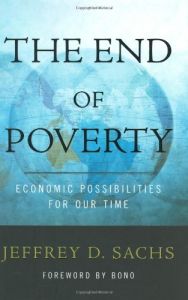
Recommendation
This is an excellent book by one of today’s most prominent development economists. Jeffrey D. Sachs has been at the forefront of the most significant economic turnarounds - for better or worse - of the past quarter century. He helped end hyperinflation in Bolivia, advised Poland on its emergence from communism, and counseled Russia, China and Africa. On the basis of his extensive research and experience, he concludes that conventional economic solutions ignore some of the key factors responsible for poverty. Borrowing a page from physicians’ diagnostic procedures, he shows how noneconomic factors can have economic implications. Along the way, he exposes the lamentable hypocrisy of the developed world and the institutions allegedly working for the development of the poor world. As an adviser to the leadership of the United Nations, Sachs believes that organization should be strengthened. He is not a dispassionate economist and doesn’t pretend to be. He has a plausible case to make and he presses it hard, maybe now and then too hard, in this effort to convince the prosperous that effective help for the impoverished is practical, at least under some circumstances. getAbstract believes his well informed, heartfelt book belongs on the reading list of anyone who hopes the world can become a better place.
Summary
About the Author
Jeffrey D. Sachs is the director of the Earth Institute at Columbia University, Quetelet Professor of Sustainable Development, Professor of Health Policy and Management, and Special Adviser to U.N. Secretary-General Kofi Annan.







Comment on this summary